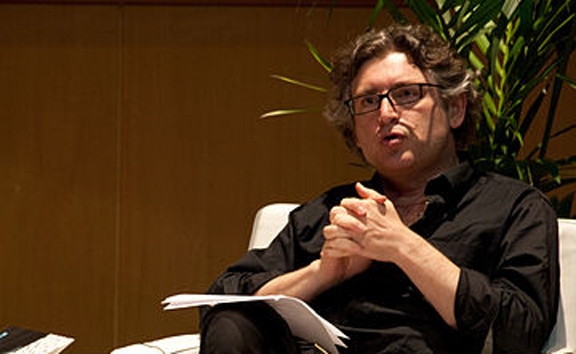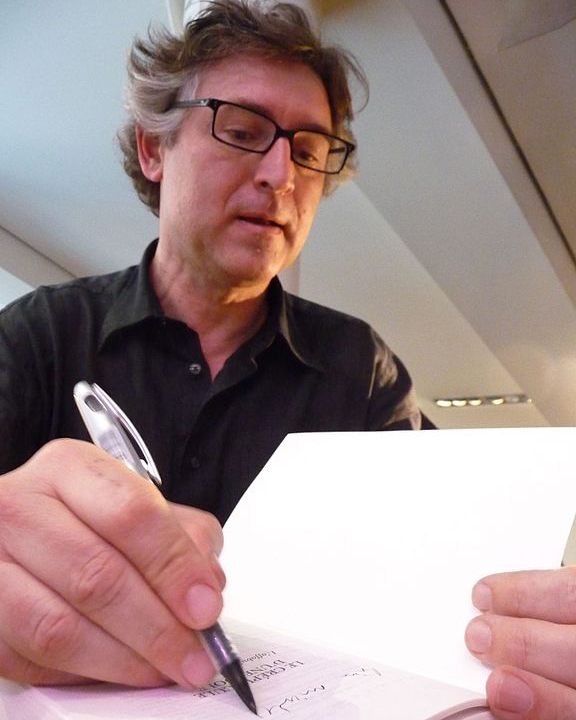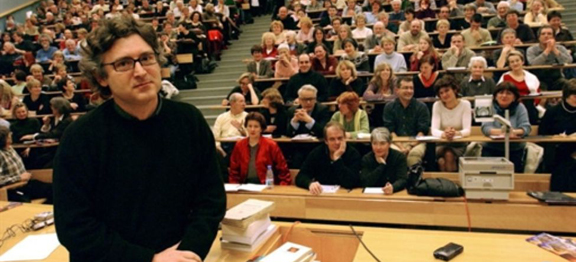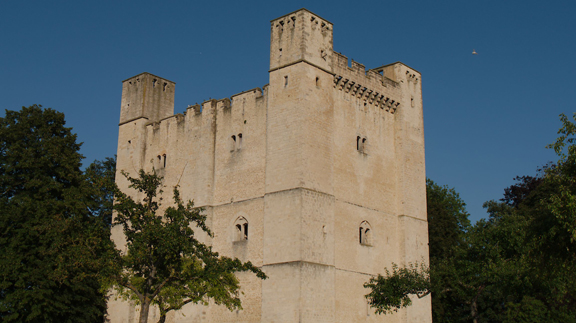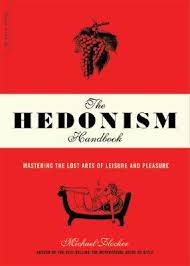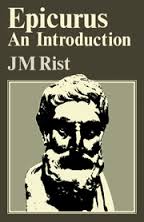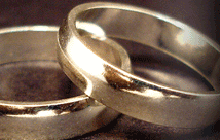Next, there is the modern view of materialist hedonism. French philosopher Michel Onfray is a contemporary proponent of this vein of hedonism. One writer describes him this way:
A radically libertarian socialist, a self-described “Nietzschian of the left,” Onfray’s philosophical project is to define an ethical hedonism, a joyous utilitarianism, and a generalized aesthetic of sensual materialism that explores how to use the brain’s and the body’s capacities to their fullest extent — while restoring philosophy to a useful role in art, politics, and everyday life and decisions. All this presupposes, in Onfray’s philosophy, a militant atheism and the demasking of all false gods (Source).
Though most of his work has yet to be translated into English, one of his most famous books has been published in English under the title Atheist Manifesto: The Case Against Christianity, Judaism and Islam. Read the following article for one author’s overview of Onfray (Source).
—–
He is a self-described hedonist, atheist, libertarian, and left-wing anarchist. He is also France’s best-selling philosopher.
At a time when a French high school teacher was forced into hiding after death threats for writing an article in Le Figaro in September calling Islam a violent, hateful religion and Christianity and Judaism non-violent, loving religions, Michel Onfray has already gone a step further: in Atheist Manifesto he dismantles and condemns as dangerous and archaic not only Islam, but Christianity and Judaism as well.
And after more than 30 books, he is finally seeing his ideas spread far beyond his native Normandy. His 2005 book, Traite d’atheologie, became a best-seller not only in France, where it has sold 230,000 copies, but also in Italy and Spain, and has sold well in other Latin countries, and even in Germany and Asia.
In the new year, it will become the first of his books to be translated into English. Published under the title Atheist Manifesto, it will arrive in Canada from Penguin in February.
Onfray has also received death threats, but far from going into hiding, he not only conducts lectures but also appears regularly on French television and radio and makes frequent appearances at philosophical forums around France and Europe.
Although he says that believing in religion’s “children’s stories for comfort” deflects from the real problems of existence and thus exacerbates them, he does not despise the believers. As a rebel against all manner of authority, he aims his ire at those who impose and organize religion and its ethics, morals and customs.
“Against the rabbis, the preachers, the imams, ayatollahs and mullahs, I persist in preferring the philosopher,” he writes in the book.
“They are the ones that know there is only one world and that any promotion of an otherworld makes us lose the use and benefit of the only one that really exists. A truly deadly sin… ”
He accepts only about one in seven requests for television or radio appearances, opting for those where he can express his ideas. For this story, he at first refused a spoken interview – disliking a format where snippets are often pulled from context and used inaccurately – but suggested that questions and answers be conveyed via email.
Yet he proved to be an engaging host at his home in Chambois and in Caen, along with the professors of the Universite Populaire de Caen, after a presentation of the new academic year of the institution he founded in 2002. And he later even agreed to answer a few more questions for this story over the phone.
It is a year charged with significance, coming as it does before the French presidential election next spring, and Onfray has been much in the French press over the past two weeks, speaking out in an article in the left-wing newspaper Liberation on the state of the far-left parties.
Onfray founded the university as a reaction to the arrival of Jean-Marie Le Pen, the leader of the far-right National Front party, into the second round of the 2002 presidential elections against Jacques Chirac. The idea, he said, was to fight against that happening again by “promoting and publicizing intelligence,” and to try to “analyze and understand how the world functions in order to put forward alternative solutions to the contemporary negativity.”
Open to anyone, with free tuition and requiring no registration, prior education, tests or other course work, the concept, like his books, is also spreading beyond his home. There are now five other Popular Universities in France and one in Belgium, all of which acknowledge Caen as their model.
Yet despite his stance on free education for all and his anarchic political ideas, Onfray is not against private property – he owns homes in both Chambois and nearby Argentan – and has a pragmatic mind for business.
When asked if the timely subject matter of the Atheist Manifesto – the war in Iraq, Sept. 11 and the fight against terrorism – is what made this his first book to be published in English, he says, “I think, frankly, it has more to do with the publishers seeing the figure of 230,000 copies sold.”
That figure refers only to the hardback in France, and not the many thousands of copies sold elsewhere in the 17 foreign contracts signed by his French publisher, Grasset.
So is interest in Onfray’s writing a sign that the world is shifting left, libertarian, and hedonist? In fact, Onfray defies the preconceived ideas about those very labels.
“I am a free man, even with the usual labels,” he says. “That is, I am a hedonist who is free, a person of the left who is free, a libertarian who is free… someone who does not enter into the classic, habitual definitions and who simply invites that his books be read.”
In the Winter 2006 issue of New Politics, Doug Ireland welcomed the forthcoming English translation of Atheist Manifesto, and called it a “scandal” that none of Onfray’s other books had yet been translated into English. He calls the book “an acerbic, stylish, and erudite polemic against received religions in general and Christianity in particular,” and “a powerful antidote to the tsunami of religious fanaticism that is engulfing the Western world as well as the Islamic countries.”
In a selection of the year’s best books in last December’s Times Literary Supplement, novelist William Boyd, who read Atheist Manifesto in French, called the book “both a passionate and coolly reasoned advocacy of atheism, setting the positive values of secularity squarely against the three great monotheisms and their multitude of hates.” Boyd added that it was, “a wonderful, invigorating blast of sanity delivered against the fog of high-toned mumbo jumbo we have to endure everywhere today.”
Certainly, not everyone is enthralled with this approach. “His work attacking hatred is sometimes full of hatred,” wrote the philosopher and author Bertrand Vergely in the French literary magazine Lire, in a mostly positive 18-page cover story on Onfray last February. “His analysis against religious fanaticism and for intelligence uses the same methods as the fundamentalists.”
Gerard Oberle, another French writer, calls Onfray a professor who has found a way to make a good living out of recycling old tales by presenting them as new ways of thinking. “And,” Oberle added, “for an atheist, I find he is a little too much of a preacher.”
If it were only the Atheist Manifesto, however, Onfray might be seen as a provocateur, a one-book-wonder, or as Publishers Weekly in July referred to his book in a preview of upcoming titles, part of a “new subcategory: the “anti-religion book.”
In fact, for Onfray, 47, it is only one part of an all-encompassing philosophical oeuvre, the foundation and interconnectivity of which he outlines in his latest book, La Puissance d’exister, or The Power to Exist, published in France in October.
His is a utilitarian philosophy celebrating an ethical hedonism that uses the brain and body as the focal point for a philosophical approach to art and politics and daily life. It breaks from the idealistic Platonic tradition that relegates the body to a lower role than the mind, and which Onfray believes has contaminated mainstream philosophy up to today.
But he also breaks from leftist traditions that call for world economic and political revolution, and aims instead for “micro-revolutions,” or revolutions of the individual and small groups of like-minded people who live by his hedonistic, libertarian values.
But again, with labels like that, it is easy to misunderstand his ideas if the books are not read. His idea of hedonism is not the one in popular use.
“It is not the caricature that is done of it,” he says. “On the contrary, it is even an ascetic, the hedonism that I propose. It is a discipline. It is more a discipline than an abandoning to animality.”
Onfray calls for a post-Christian age when people not only say they are not religious but also cease to live by the Christian ethics.
In other words, many people who do not go to church still marry there, or baptize their children; medical ethics concerning euthanasia, for example, are governed not by humanitarian issues but by Judeo-Christian ideas of letting a god decide when we die.
The seeds of his philosophical choices, he says, were planted in Chambois, a sleepy village of 475 people famous mainly as the scene of a key battle after the Normandy invasion in World War II, in which the German army was defeated by the allies in August 1944. Its other main feature is the small, 12th-century castle in its centre.
Onfray’s father was a farm labourer, his mother a cleaning woman. He shows in The Power to Exist, how the experience of being sent away by his parents at 10 to live in an orphanage run by Salesian priests shaped his thinking.
There he developed his hatred for authority and the church that ran the institution. He stayed until he was 14, before being sent to a boarding school until he was 17.
“My four years in a boarding home, a Salesian orphanage, made me stubborn against discipline, or order, and accessory to that, to religion,” he says. “But first, against all forms of order, every form of authority that comes from on high, if you like. Against all authority that is not legitimate.”
He prefaces most of his books with a personal story on how his philosophy came about, and objects to philosophers who claim that their lives do not influence their thinking.
A heart attack at 28 led him to write his first book, Le Ventre des philosophes, or The Stomach of the Philosophers, about the eating habits of philosophers from Diogenes to Sartre, and how it is reflected in their philosophy.
In a sudden revolt against a hospital dietician lecturing him on how he must change his eating habits after the heart attack, he sent her away, saying that he “preferred to die eating butter than to economize my existence with margarine.”
Yet for a man who has had both a heart attack and, in 2004, a stroke – which briefly left him unable to write or speak properly – he looks in remarkable condition. He is tall, slim, handsome and vibrant ,and continues to eat and drink what he wants.
Having taken a Ph.D. in philosophy, he taught philosophy in a technical high school in Caen from 1983 to 2002, when he quit to open the university.
Inspired by a university in France opened in 1896 as a reaction to the Dreyfus affair to bring education to the masses and partly to fight anti-Semitism, Onfray’s university now has a staff of 12 professors teaching subjects ranging from philosophy – including a course for children – to medical ethics, jazz, contemporary art and the cinema, feminism, literature and architecture. The administrative costs and travel fees for the professors, who are all volunteers, are paid for by a handful of sponsors and the lecture rooms are donated by the University of Caen, a local museum, a cafe and a theatre.
A full house of more than 500 people attends Onfray’s Tuesday lectures, and 1,500 people attend the 122 classes in 12 subjects over the year. As there is no registration, it is impossible to tell exactly how many different people attend, but the yearly total is nearly 20,000 – in a city with a population of 114,000. Says Roger Le Goff, a retired technology teacher who has attended the classes from the beginning, “I am an atheist, and it is much easier to live when you think of there being another life after death.
“It’s not that it posed much of problem for me, but now it poses less of a problem for me – knowing that my end is fairly near does not bother me at all, because the important thing is the present moment.”
But Onfray’s business sense also means the university helps his own process as a writer. The 35 hours he uses to prepare each course are being turned into a six-volume work called the Counter-History of Philosophy.
The first two volumes came out this year, and two more are slated for 2007. They are also sold as CD recordings. The series recounts the alternative, hedonistic, materialistic, non-idealistic history of philosophy from the pre-Socratics to the present.
In fact, for a hedonist, he always seems to be working. But that fits snugly into his ideas of atheism and living in the present moment:
“I have always been like that,” he says. “I don’t want to take a rest in this life. We have all of eternity to take a rest.”
—-
One professional who uses this notion of materialist hedonism to spur his creative work is the Danish architect Bjarke Ingels. Watch his engaging video and ask yourself how his hedonistic worldview is affecting his design work.



